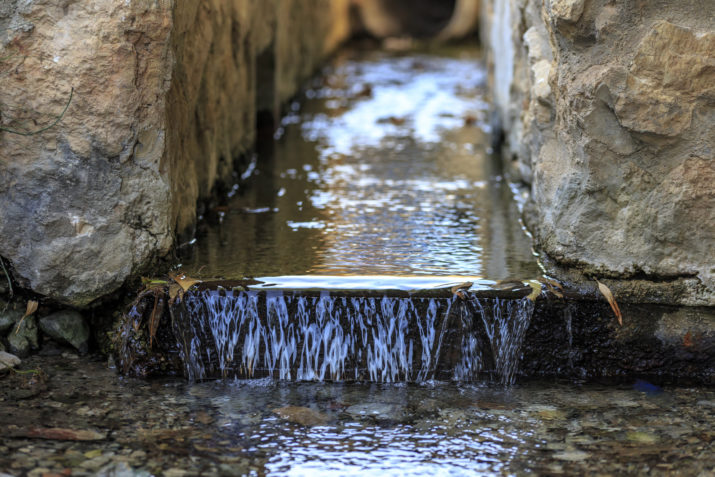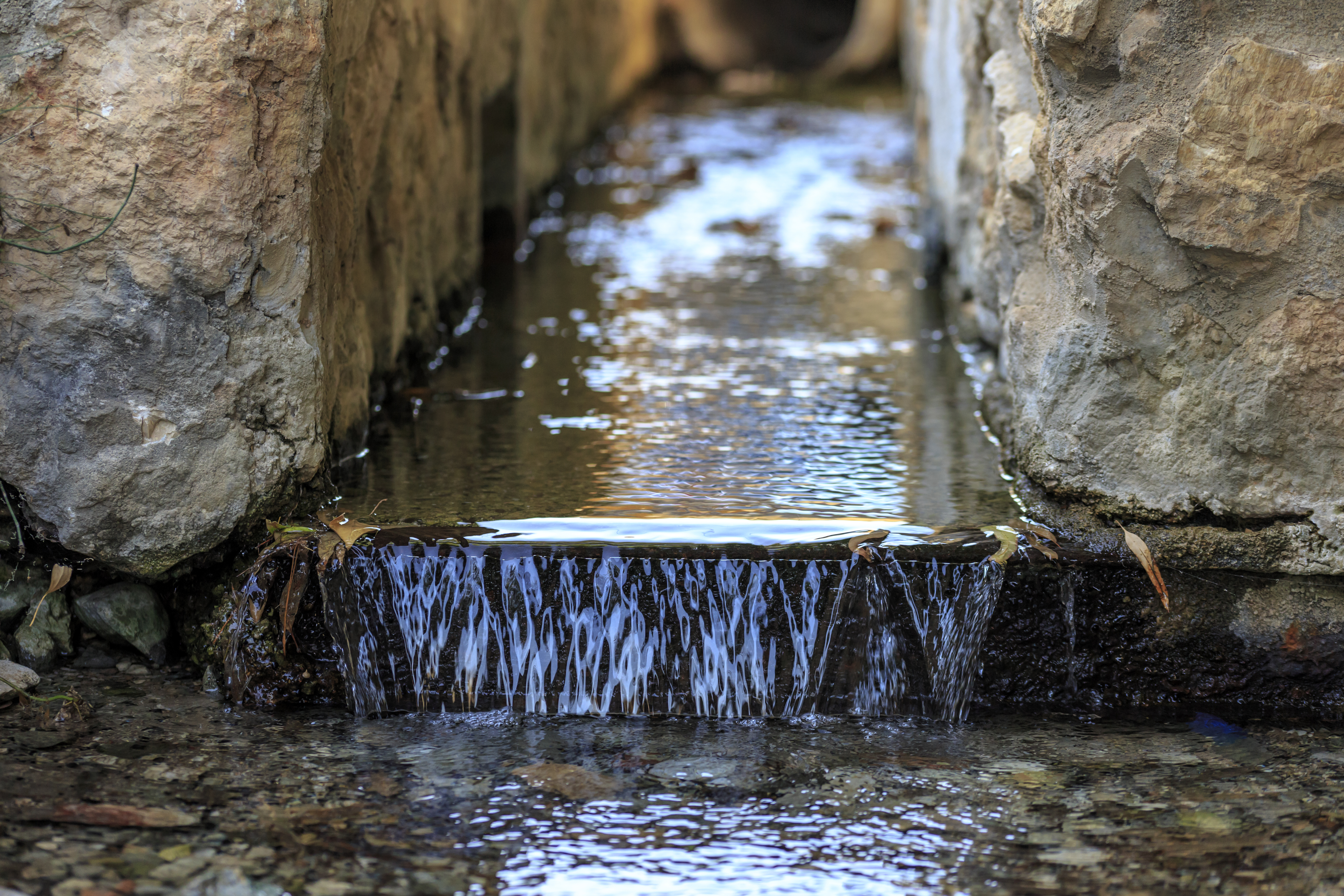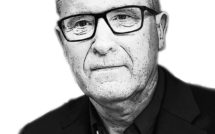
IHE Delft Institute for Water Education: Integrating International Graduate Education as a Legacy of the North Sea Flood of 1953:

This is part of our Campus Feature on Water Centers & Institutes.
IHE Delft is the largest international graduate water education facility in the world and is based in Delft, the Netherlands. Since 1957, the Institute has provided water education and training to professionals from over 190 countries, the vast majority from Africa, Asia, and Latin America. Numerous research and institutional strengthening projects are carried out in partnership to strengthen capacity in the water sector worldwide. Through our overarching work on capacity development, IHE Delft aims to make a tangible contribution to achieving all Sustainable Development Goals in which water is key.
IHE Delft is a non-profit foundation registered in the Netherlands, financially independent while operating under the auspices of UNESCO. Its operations are financed by base funding from the Dutch Ministry of Education, Culture and Science and by revenue from tuition fees, research, and institutional strengthening projects.
Historic overview
The Netherlands became famous in the field of hydraulic engineering after the devastating North Sea flood of 1953. This flood broke dikes and seawalls in the Netherlands, killing almost 2,000 people and destroying 4,500 buildings. To prevent such a tragedy from happening again, an ambitious flood defence system was conceived and deployed, called the Delta Works. In 1955, this led to several other countries enquiring about the possibility of having their engineers trained in the Netherlands in the field of hydraulic engineering. The request of the Ambassador of East Pakistan (now Bangladesh) marks the start of training international engineers.
In 1957 the first “International Course in Hydraulic Engineering” was set up and followed by forty-five participants from twenty-one different countries. In 1960, upon request of the World Health Organisation (WHO) and the Organisation for Economic Cooperation and Development (OECD), in collaboration with Delft University of Technology and the Netherlands Universities Foundation for International Cooperation (Nuffic), the curriculum was extended with the “European Course in Sanitary Engineering.”
In 1976, the name International Institute for Hydraulic and Environmental Engineering (IHE) was introduced. Several years later, after a steady growth of courses and research themes, the word Infrastructural was added to the full name, not changing the abbreviation IHE however. From 1985 to 1998, IHE became a major player in water sector capacity building by educating and training individuals, research activities and strengthening institutions in developing countries.
In 2003, the Institute joined the UNESCO Water family and changed its name to UNESCO-IHE Institute for Water Education. From 2017, changing its name back to IHE Delft Institute for Water Education, the Institute continues to operate as a Foundation under Dutch law, working under the auspices of UNESCO.
Today, IHE Delft has trained more than 23,000 water professionals from 190 countries. It has also graduated more than 150 PhD candidates in collaboration with leading universities and executed numerous research and capacity building projects throughout the world. The Institute is accredited to confer MSc degrees under Dutch law.
Core activities of the institute
Education
IHE Delft offers four 18-month Master of Science programmes, with a total of 16 specializations. Furthermore, the Institute recently launched a fifth, 12-month Master of Science programme, which focuses on non-sewered sanitation.
The MSc programmes are: Water Management & Governance, Urban Water & Sanitation, Environmental Science and Water Science & Engineering.
The aim of the Institute’s MSc Programmes is to educate students primarily from developing countries and countries in transition, as well as students from developed countries with a strong interest in water and development. The Master’s education helps them to become creative problem solving professionals in the field of water and the environment and the curricula are geared towards supporting a greater understanding of sustainable development and the inherent challenges in achieving that.
Teaching staff and students come from all over the world and (research) partnerships with related institutes and universities play an important role in teaching. The educational environment can therefore be called truly international; it is characterized by pluralism and diversity and stimulates students throughout their studies to develop communication skills that will enable them to disseminate their professional knowledge and skills effectively.
See also the video about studying at IHE Delft on YouTube: https://www.youtube.com/watch?v=ckQKw36ow4s
Research
Global challenges require an accelerated process of turning research outputs into practice. IHE Delft links universities and knowledge institutes in the Global North and Global South. Our approach is collaborative research, executed by MSc students, PhD fellows, Postdocs and research staff at the Institute. Themes we focus on are aligned with the Sustainable Development Goals of the United Nations, and include flood resilience, water scarcity, drinking water, sanitation, sustainable irrigation development, diplomacy and protecting aquatic ecosystems.
Institutional Strengthening
IHE Delft strives to strengthen the programmes of universities and research institutes as well as the knowledge and capacity base of ministries and other water sector organizations in Africa, South-America and Asia/Pacific. We do this by training water professionals on-the-job, creating water education networks, joint research, policy advice, distance & e-learning, participation in innovative projects and facilitating knowledge sharing.
We work on numerous capacity development projects with many partners. Learn more about these projects here: https://www.un-ihe.org/projects
Our contribution to the Sustainable Development Goals
The Sustainable Development Goals (SDGs) of the United Nations are important and ambitious goals that keep us at IHE Delft focused on our role in addressing water and development challenges. As an institute providing training, research and capacity development in water-related topics, one of our most important goals is ‘Clean Water and Sanitation’. However, water cannot be seen in isolation and is often a precondition for other goals. Therefore, together with our partners, we are also contributing to other SDGs, such as: zero hunger, gender equality, affordable and clean energy, and sustainable cities and communities, among others.
Four examples of how we contribute to the SDGs
Goal 2: Zero hunger
IHE Delft and project partners believe that investments made under climate-finance mechanisms can potentially contribute to local development and poverty reduction. We investigate the implications of different approaches for benefit sharing within climate-financing projects for various groups of stakeholders. We also examine what this means for access to natural resources (land, water, forest) at national, regional and local levels. We systematically analyse the extent and causes of conflicts in climate-financed projects and the embedding of conflicts in the broader institutional and policy context. We assess the sources of conflicts, analysing the workings of climate-finance mechanisms that hamper collaborative outcomes. In doing so, we produce empirical evidence on the dynamics of cooperation and conflict in climate financed projects, and provide recommendations to enhance collaborative outcomes.
Donor organization: Netherlands Organisation for Scientific Research (NWO)
Goal 6: Clean water and sanitation
Citizen participation in environmental policymaking is still in its infancy, yet many citizens, both as individuals and as groups, often feel disengaged from influencing environmental policies. IHE Delft has been involved in multiple projects aimed at improving citizen engagement through citizen-based monitoring of their environment, with partners that include the Institute of Communication and Computer Systems (ICCS) and the University of Sheffield. With Ground Truth 2.0 (www.gt20.eu) we are developing six citizen observatories in real operational conditions, both in the EU and in Africa using an innovative socio-technical co-design approach. Earlier, we defined a framework in which citizens cooperate with authorities in sharing collective intelligence which supports a shared situational awareness (see www.wesenseit.eu). A related project, SCENT, enables citizens to become the ‘eyes’ of the policymakers by monitoring land use changes in their everyday activities (www.scent-project.eu). We are thus combining smart collaborative technologies, including low-cost and portable data collection tools, serious gaming applications for large-scale image collection, a powerful machine-learning engine, models for mapping land-cover changes to quantify impact of flood risks, and a harmonization platform, to generate new data for informed decision-making.
Donor: European Commission
Goal 14: Life below water
The AXA Chair in Climate Change Impacts and Coastal Risk (CC& CR) at IHE Delft studies the impacts of climate change on the coasts. Through this programme, we model climate change-driven coastal hazards and develop innovative coastal risk assessment methods and tools. Our results will enable science-backed, efficient cost-benefit assessments of both hard adaptation strategies such as engineering structures and also of softer options such as spatial planning, innovative architecture and construction, particularly in data-poor and vulnerable developing countries where adaptive capacity is often resource-constrained. The research undertaken within this interdisciplinary programme spans the fields of coastal engineering, climate science, hydrology, ecology, applied mathematics, physical geography, risk modelling, oceanography and governance.
Donor: AXA Foundation
Goal 16: Promote peaceful and inclusive societies
Water insecurity is increasing worldwide. 36% of the world’s people live in water-scarce regions, with the numbers set to increase thanks to population growth, rapid urbanisation, and growing economic demands for water. Meanwhile, floods affect over 100 million people. Ecosystem losses and climate change impacts exacerbates these threats.
The growing crisis increasingly poses a threat to livelihoods, economies, and global security. Organisations including the United Nations, the World Economic Forum and the High-Level Panel on Water have all added their voice to these concerns.
In response, the Water, Peace and Security Partnership experiments with designing innovative tools that can identify developing water-related security risks, and lead to evidence-based action (see https://www.un-ihe.org/water-peace-and-security-partnership).
Through creating a pioneering model from global data sets, local knowledge and satellite imagery we aim to create meaningful information, such as early warning signals showing where risks that could compromise livelihood security are increasing.
This information helps decision makers, including politicians, communities and the private sector, to act.
Training is provided to assist countries where threats have been identified, to mitigate current and impending crises, while averting potentially-destabilising conflicts and migration.
The information and understanding generated can be used to bring together stakeholders at international and sub-national levels. This hopefully diffuses tensions and paves the way for solutions.
The Water, Peace and Security partnership is a collaboration among an expanding group of organisations lead by IHE Delft.
Donor: The Netherlands Ministry of Foreign Affairs
Photo: Small waterfall in a traditional irrigation ditch used for channeling groundwaters | Shutterstock
Published on December 11, 2018.




